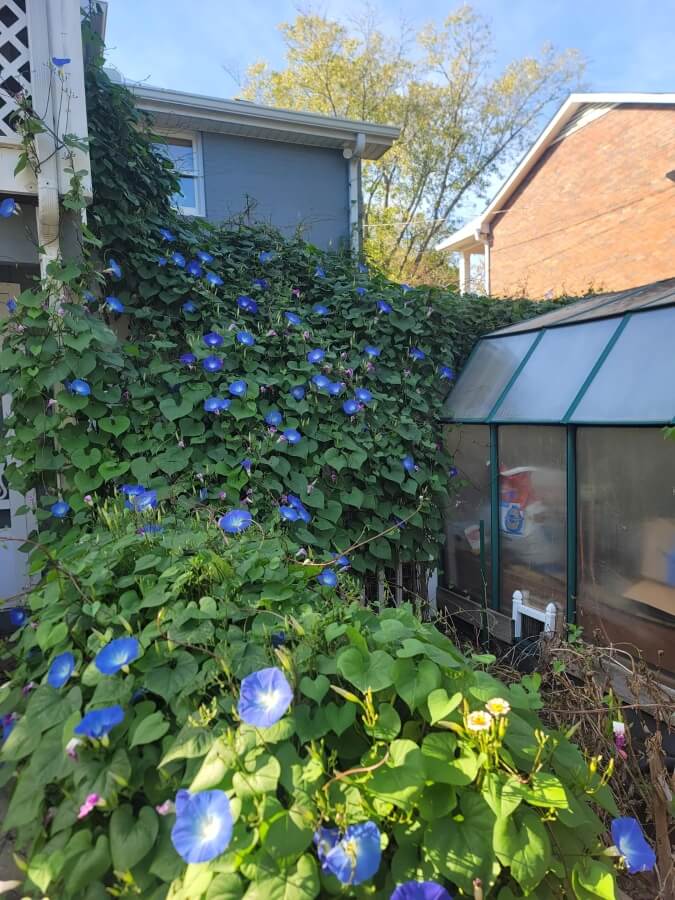Many people love morning glories because of their colorful, romantic, trumpet-shaped flowers that often adorn arches or serve as ground cover.
However, morning glories can also be seriously challenging to control and are sometimes considered invasive weeds because they take over an area and crowd out other plants.
One homeowner shared a photo to r/homestead showing massive morning glory overgrowth consuming a yard and multiple buildings.

Though morning glories are beautiful, they and other invasive species cause many headaches and hassles for homeowners.
Backyard gardeners must spend hours pulling and cutting back invasive plants, perhaps even spending extra money on professional help or special tools.
When people introduce non-native plants to their yards, they upset the balance of local ecosystems. This imbalance can lead to the extinction of native plant species that are vital sources of food and shelter for wildlife.
A better alternative is to grow a natural lawn that requires minimal maintenance and cost. When you embrace the wild yard trend with native plants that pollinators love, you'll waste less time on chores and create a uniquely attractive space that inspires your friends and neighbors.
In the case of the original poster's morning glory problem, there are a few practical approaches to consider, per Lawn Doctor.
It's best to pull up morning glories from the roots. But you'll also need to collect the plant's seeds and seed pods so it doesn't spread and reproduce. To prevent the growth shown in the OP's photo, address the earliest sprouts of morning glories to avoid excessive seed spreading.
Reddit users were shocked to see how big the OP's morning glories had gotten and expressed their opinions about the extent of the growth.
"Ugh, these things should be illegal to sell and or grow," someone wrote. "I hate them."
Another Redditor commented: "I've seen 'em take over whole yards — literally coat three-story building walls. Remove 'em now or you will have to continually fight them for the rest of your life."
"You'll regret letting these get to this state," a third user shared. "Horrible plant to deal with."
Join our free newsletter for easy tips to save more and waste less, and don't miss this cool list of easy ways to help yourself while helping the planet.









